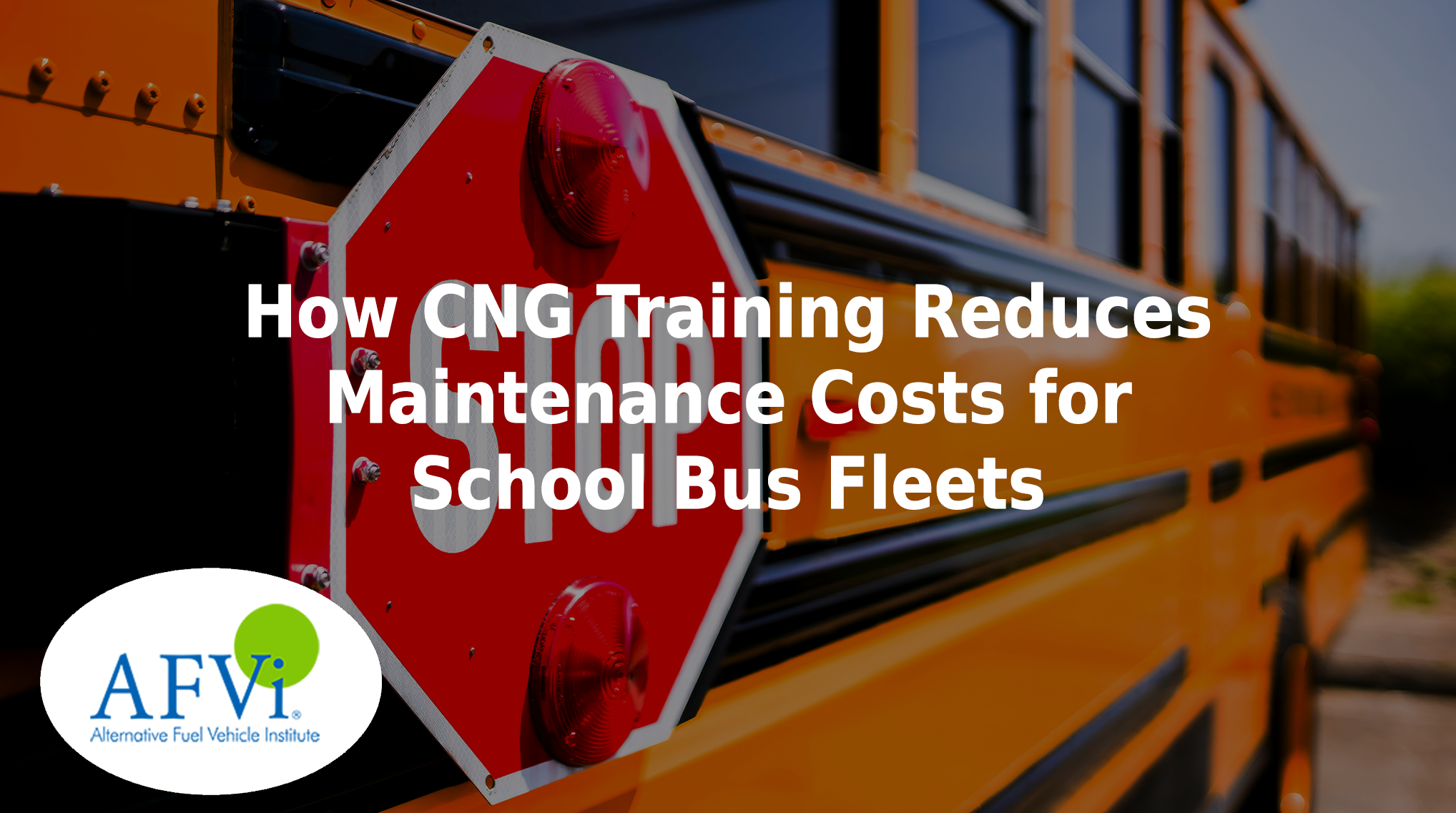How CNG Training Reduces Maintenance Costs for School Bus Fleets
The Financial and Operational Benefits of CNG Training
Compressed natural gas (CNG) is an economical alternative fuel for school bus fleets. However, improper maintenance can lead to costly repairs and unnecessary disruptions. Investing in CNG training equips technicians with the expertise needed to save revenue, improve fleet efficiency, and ensure safety for themselves, drivers, students, and the general public. Here’s how CNG training reduces maintenance costs for school bus fleets.
Key Ways CNG Training Lowers Maintenance Costs
1. Preventive Maintenance Reduces Costly Repairs
Routine fuel system inspections and preventive maintenance help detect issues early, preventing expensive breakdowns. Trained technicians can:
- Identify potential fuel system issues before they escalate.
- Maintain engine components to extend their lifespans.
- Reduce labor and parts replacement costs.
2. Improved Fuel System Management Enhances Efficiency
CNG fuel systems require specialized handling and servicing. Technicians trained in CNG maintenance can:
- Properly inspect fuel cylinders, pressure regulators, and fuel lines.
- Identify fuel leaks and fuel system component issues.
3. Reduced Vehicle Downtime Keeps Buses in Operation
CNG training keeps your buses available to run your normal routes and schedules without interruptions. Technicians should be able to:
- Diagnose and repair issues quickly.
- Implement proper fueling and maintenance techniques.
- Reduce maintenance turnaround time.
4. Meeting Industry Standards for Safety
Failing to meet industry regulations can risk accidents and liability for your district. Technician training helps school systems meet the requirements under:
- National Fire Protection Association (NFPA) 52, which provides safety codes related to CNG fueling stations and vehicle maintenance.
- ANSI NGV 6.1, which serves as the installation standard for natural gas fuel storage and delivery systems.
Choosing the Right CNG Training Program
A high-quality CNG training program should provide:
- Extensive experience with fuel system inspections and repairs.
- Up-to-date knowledge of CNG safety regulations.
- Techniques for maximizing fuel efficiency and reducing maintenance costs.
Fleet managers should select accredited training providers with experienced instructors to ensure long-term operational success.
How AFVi Supports CNG Training for Cost Savings
AFVi offers expert-led CNG training programs designed to help school bus fleets optimize maintenance practices, reduce costs, and enhance vehicle reliability. Our training gives technicians the skills that they need to maintain CNG buses efficiently.
Invest in CNG training today! Contact us to learn more.


